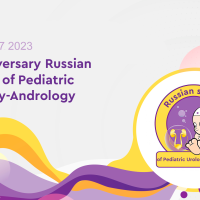
Pelvic organ prolapse repair with prolift transvaginal mesh: retrospective study of 118 cases
Article authors





Clinic of Urology MSMSU
Hypothesis / aims of study
AIM: The aim of this study was an evaluation of safety and efficacy of surgical management of female pelvic organ prolapse (POP) with application of transvaginal synthetic meshes (Prolift, Gynecare) .
Study design, materi als and methods
METHODS: The present retrospective study comprised 118 patients who underwent surgery at U ro g ynecology department of our Clinic between January 2005 and December 2008 . All patients had a genital prolapse stage 3 - 4 according to POP - Q Interna tional Continence S ociety classification. According to each case, prosthetic interposition was total, or anterior only or posterior only. In total , forty anterior (33.9%) , twelve posterior (10,1%) and sixty - six total Prolift procedures (55,9%) were perform ed. Pat ients were systematically seen within 1 month , 3 months and 12 months after surgery. Multivariate statistical analysis followed a model of logistic regression applied to each post - surgical complication.
Results
T he mean age of patients was 64.6 year s. T he mean follow - up period was 7 months (3 - 36). Eighty patients reported symptoms resolution ( 67.8 %). Another 31 females considered their symptoms s ignificant ly improve d ( 26.3% ) after prolapse repair. Failure of mesh surgery was found in 7 patients (5.9% ). All patients with prolapse recurrence had isolated anterior (6) either posterior meshes (1). Only two patients have had concomitant hysterectomy during POP repair. In – surg ery complications were three bladder wounds ( 2.5 %), one rectal wound (0.8%), t wo vascular injures (1.7% ) and three hemorrhages greate r that 200 mL (2.5 %). Among early post - surgical complications (during the first month after surgery) were eight pelvic hematomas (6.8 %), three case s of urinary retention ( 2.5 %) . Among late post - surgic al complications there were seven erosions ( 5 .9 % ), two cases of persistent pelvic pain ( 1.7 %), three UTI s (2.5%), seven de novo SUI (5.9 %) and fo u r de novo urge incontinence (3.4 %).
Interpretation of results
Management of genital prolapse with synthetic p rostheses interposed through vaginal approach is safe and efficient method . It can be reproduced with a low rate of peri - and early post - surgical complications.
Concluding message
Transv aginal Prolift Mesh technique is effective and safe method of treatme nt of genital prolapse with a low rate of peri - and early post - surgical complications . However further randomized clinical trials are needed to recommend this technique as the gold standard .
| Specify source of funding or grant | NONE |
| Is this a clinical trial? | No |
| What were the subjects in the study? | HUMAN |
| Was this study approved by an ethics committee? | Yes |
| Specify Name of Ethics Committee | Ethics Committee of Moscow State University of Medicine and Dentistry |
| Was the Declaration of Helsinki followed? | Yes |
| Was informed consent obtained from the patients? | Yes |






